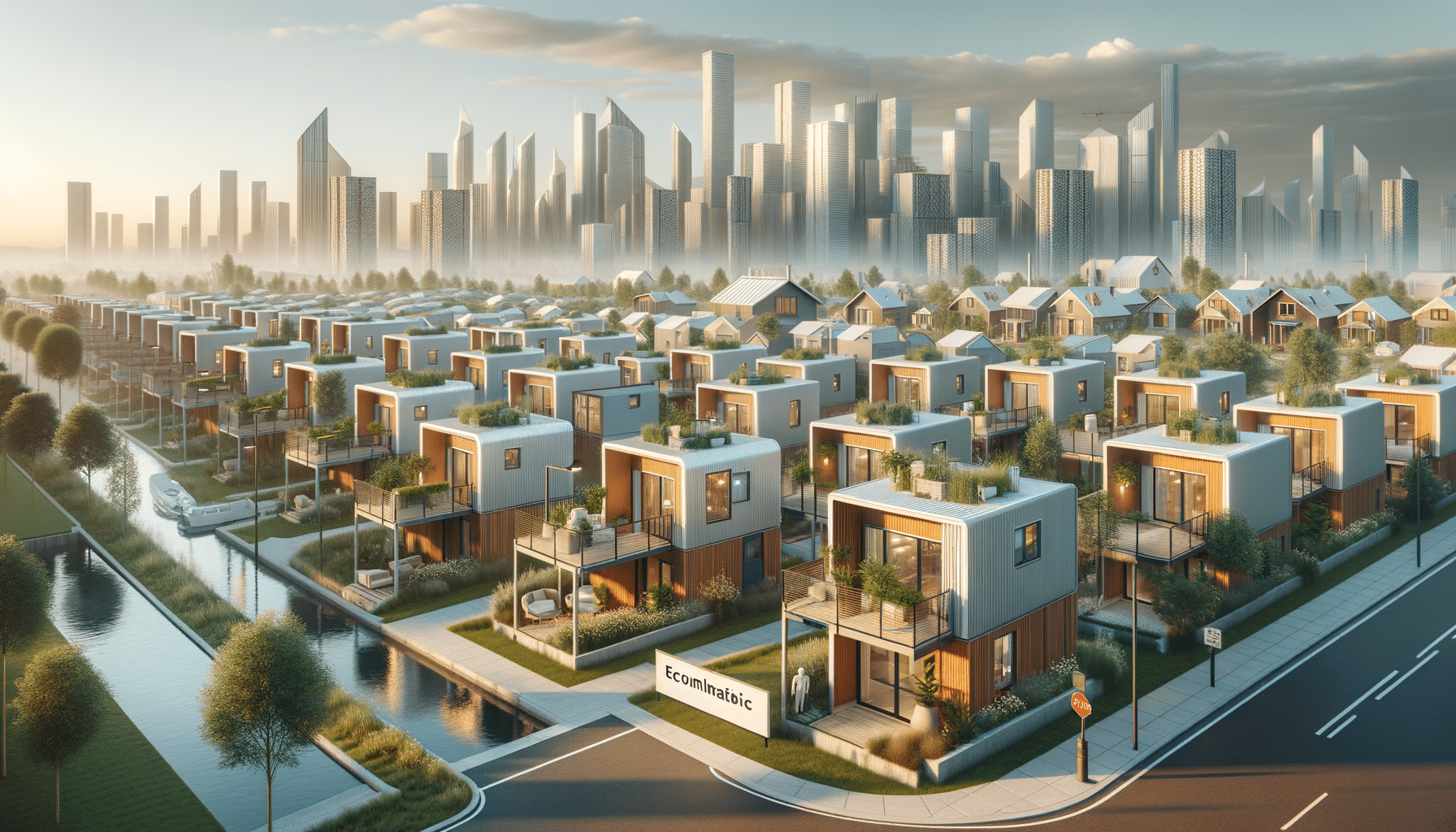Unveiling Cost-Efficient Modular Homes: An Emerging Trend in Contemporary Living
In the ever-changing real estate landscape, economical modular homes emerge as a forward-thinking, efficient alternative for those in pursuit of quality, value-for-money living arrangements.

Introduction to Modular Homes: A Modern Solution
In recent years, modular homes have gained significant traction as a viable solution to modern housing challenges. These prefabricated structures are assembled in factories and then transported to their permanent sites, offering a blend of efficiency and cost-effectiveness. The appeal of modular homes lies in their ability to combine high-quality materials with streamlined production processes, resulting in homes that are not only affordable but also environmentally friendly. The modular approach allows for customization and scalability, catering to diverse needs and preferences.
Modular homes address several pressing issues in the housing market, including the need for sustainable construction practices and the demand for affordable housing options. As urban areas continue to expand, the demand for quick and efficient construction methods has never been greater. Modular homes offer a solution by significantly reducing construction time and minimizing waste. This innovative approach to home building is reshaping the landscape of real estate, making it an attractive option for first-time homebuyers and seasoned investors alike.
The Economic Advantages of Modular Homes
One of the primary benefits of modular homes is their cost-effectiveness. Traditional construction methods often involve lengthy timelines and unpredictable expenses, whereas modular homes offer a more controlled and efficient process. The factory-based construction of modular homes allows for bulk purchasing of materials, reducing costs and ensuring consistent quality. Additionally, the reduced construction time translates to lower labor costs, making modular homes a financially appealing option.
Moreover, modular homes are designed to be energy-efficient, incorporating features such as superior insulation and energy-efficient windows. These elements contribute to reduced utility bills, providing long-term savings for homeowners. The economic advantages of modular homes extend beyond initial cost savings, offering a sustainable and financially prudent choice for modern living.
Customization and Flexibility: Tailoring Homes to Individual Needs
Modular homes offer a high degree of customization, allowing homeowners to tailor their living spaces to their specific needs and preferences. Unlike traditional homes, where modifications can be costly and time-consuming, modular homes provide flexibility in design and layout. This adaptability is particularly beneficial for families with evolving needs or for those who wish to incorporate unique architectural elements into their homes.
The modular construction process enables homeowners to choose from a variety of floor plans and finishes, ensuring that their home reflects their personal style. Whether it’s a minimalist design or a more elaborate setup, modular homes can accommodate a wide range of tastes. This level of customization enhances the appeal of modular homes, making them a popular choice in the contemporary housing market.
Sustainability and Environmental Impact
In the context of increasing environmental awareness, modular homes stand out as a sustainable housing solution. The controlled factory environment reduces waste and promotes efficient use of materials, minimizing the ecological footprint of home construction. Furthermore, the energy-efficient designs of modular homes contribute to lower carbon emissions, aligning with global efforts to combat climate change.
Many modular home manufacturers prioritize the use of eco-friendly materials and sustainable practices, further enhancing their environmental credentials. By choosing modular homes, homeowners can enjoy the benefits of a modern, comfortable living space while contributing to a more sustainable future. This commitment to environmental responsibility is a key factor driving the popularity of modular homes in today’s market.
Conclusion: The Future of Modular Homes in Real Estate
The rise of modular homes represents a significant shift in the real estate industry, offering a practical and innovative solution to contemporary housing challenges. As more individuals and families seek affordable, customizable, and sustainable living options, the demand for modular homes is expected to grow. These homes not only provide economic benefits but also align with the broader movement towards environmentally conscious living.
For those considering a new home, modular homes present an opportunity to embrace modern construction techniques without compromising on quality or style. As the landscape of real estate continues to evolve, modular homes are poised to play a pivotal role in shaping the future of housing. Their versatility, efficiency, and sustainability make them a compelling choice for the discerning homeowner.